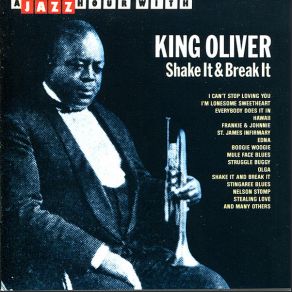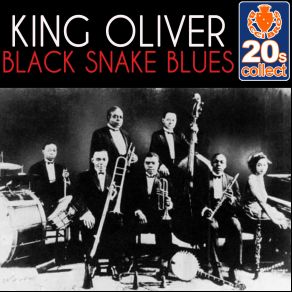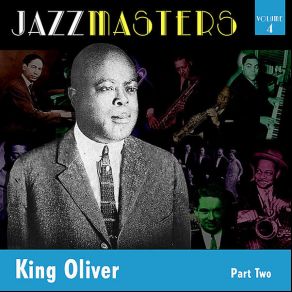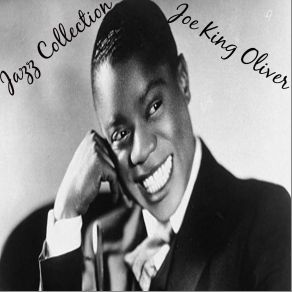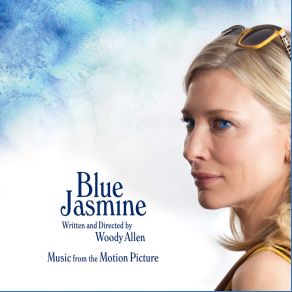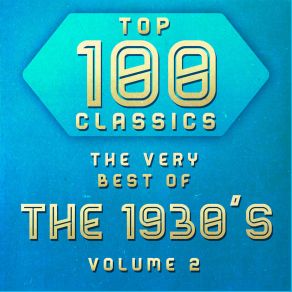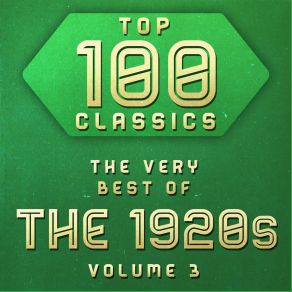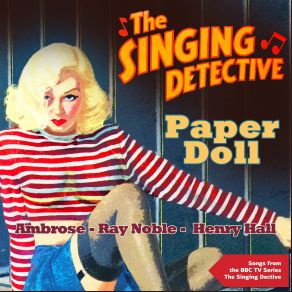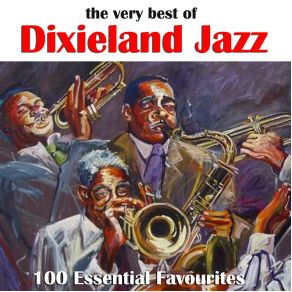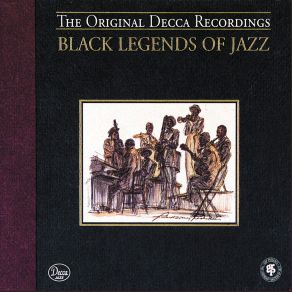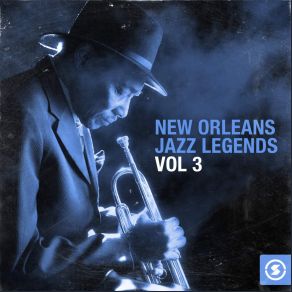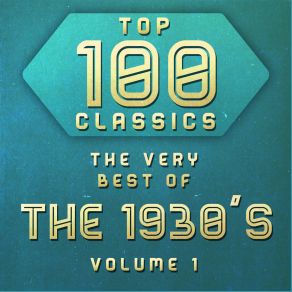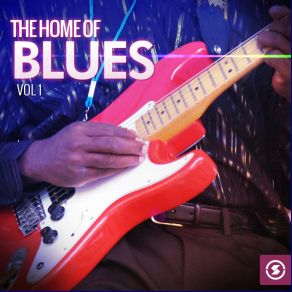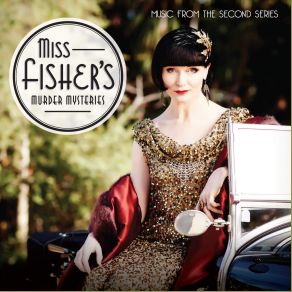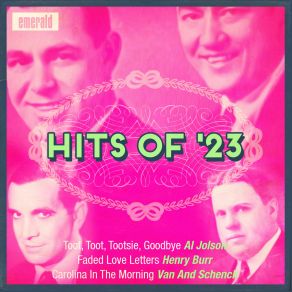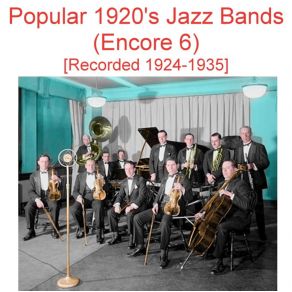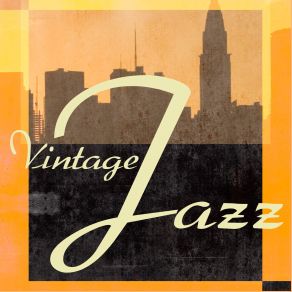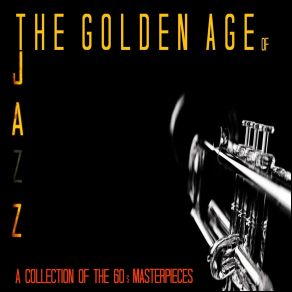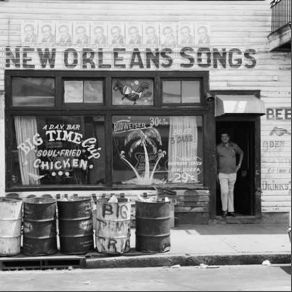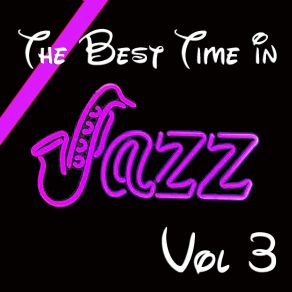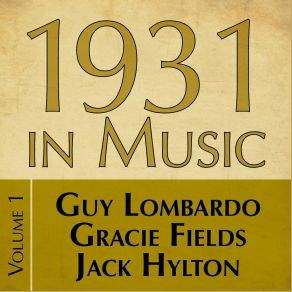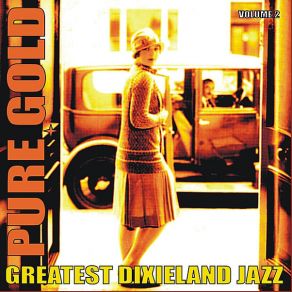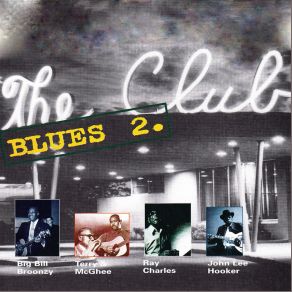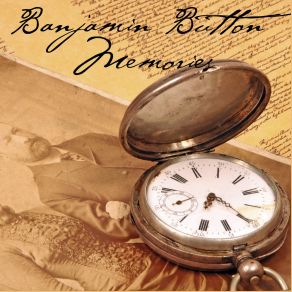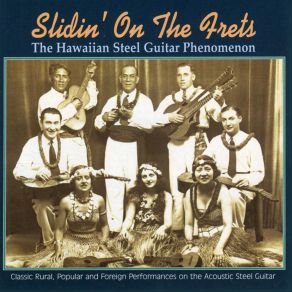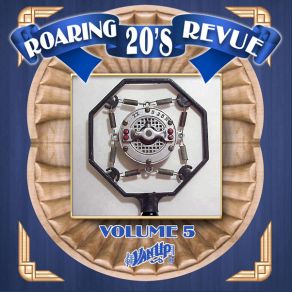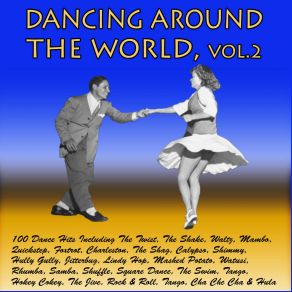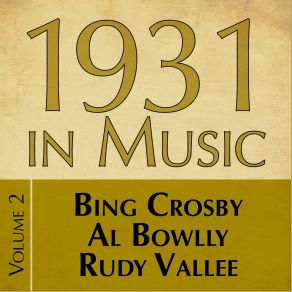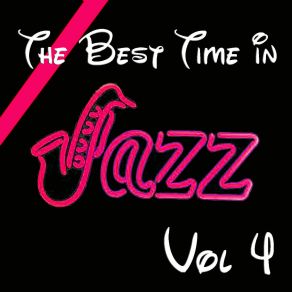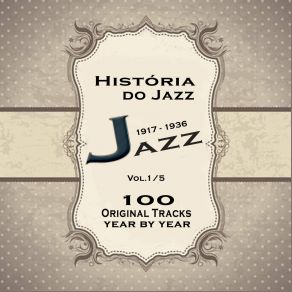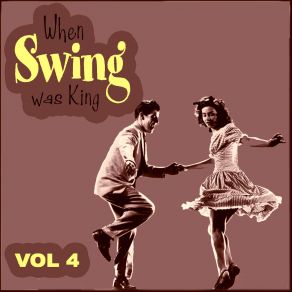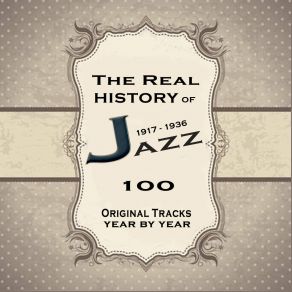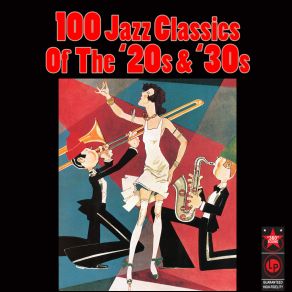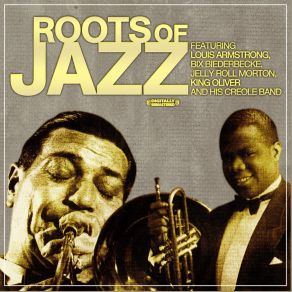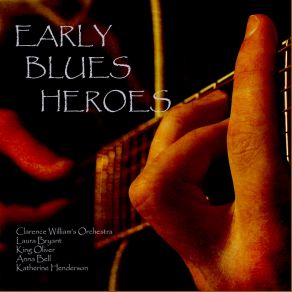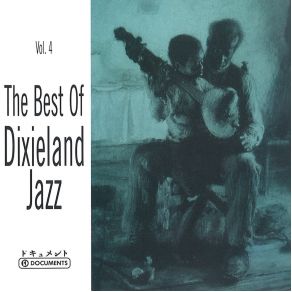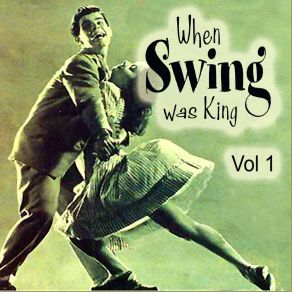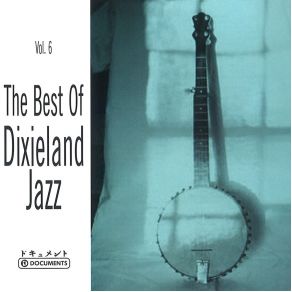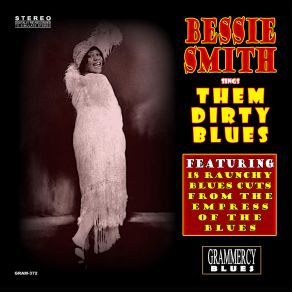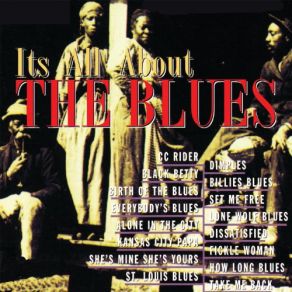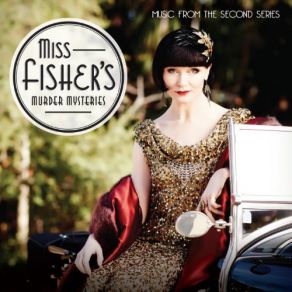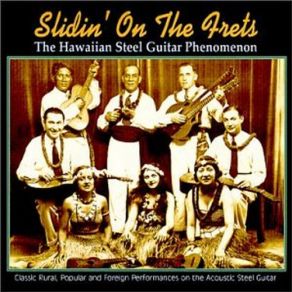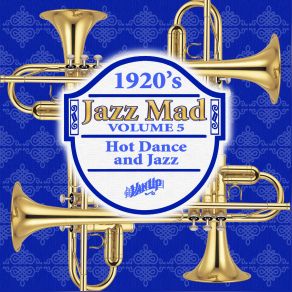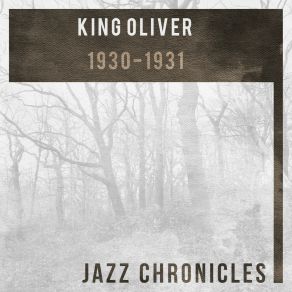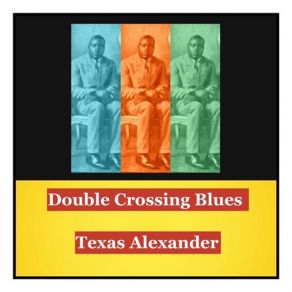King Oliver
Wikimp3 information about the music of King Oliver. On our website we have 11 albums and 70 collections of artist King Oliver. You can find useful information and download songs of this artist. We also know that King Oliver represents Jazz genres.
Biography
[Edit]Joe "King" Oliver was one of the great New Orleans legends, an early giant whose legacy is only partly on records. In 1923, he led one of the classic New Orleans jazz bands, the last significant group to emphasize collective improvisation over solos, but ironically his second cornetist (Louis Armstrong) would soon permanently change jazz. And while Armstrong never tired of praising his idol, he actually sounded very little like Oliver; the King's influence was more deeply felt by Muggsy Spanier and Tommy Ladnier.
Although originally a trombonist, by 1905 Oliver was playing cornet regularly with various New Orleans bands. Gradually he rose to the top of the crowded local scene, and in 1917 he was being billed "King" by bandleader Kid Ory. A master of mutes, Oliver was able to get a wide variety of sounds out of his horn; Bubber Miley would later on be inspired by Oliver's expertise. In 1919, Oliver left New Orleans to join Bill Johnson's band at the Dreamland Ballroom in Chicago. By 1920, he was a leader himself and, after an unsuccessful year in California, King Oliver started playing regularly with his Creole Jazz Band at the Lincoln Gardens in Chicago. He soon sent for his protégé Louis Armstrong, and with clarinetist Johnny Dodds, trombonist Honore Dutrey, pianist Lil Harden, and drummer Baby Dodds as a core, Oliver had a remarkable band whose brilliance was only hinted at on records. As it is, the group's 1923 sessions far exceeded any jazz previously recorded; Oliver's three chorus solo on "Dippermouth Blues" has since been memorized by virtually every Dixieland trumpeter.
Unfortunately, the Creole Jazz Band gradually broke up in 1924. Oliver recorded a pair of duets with pianist Jelly Roll Morton but otherwise was off records that year. He took over Dave Peyton's band in 1925 and renamed it the Dixie Syncopators; Barney Bigard and Albert Nicholas were among the members. New recordings resulted (including "Snag It," which has a famous eight-bar passage by Oliver) but when the cornetist moved to New York in 1927, his music was behind the times and he made some bad business decisions (including turning down a chance to play regularly at the Cotton Club). Worse yet, his dental problems (caused partly by an early liking of sugar sandwiches) made playing cornet increasingly painful and, on many of his later recordings, Oliver is barely present (although he did a heroic job on 1929's "Too Late"). Pianist Luis Russell took over the Dixie Syncopators in 1929 and, although Oliver's last recordings (from 1931) are superior examples of hot dance music, he was quickly becoming a forgotten name. Unsuccessful tours in the South eventually left Oliver stranded there, working as a manager of a poolhall before his death at age 52.
Title: King Oliver's Dixie Syncopators, Vol. 2
Artist: King Oliver, His Dixie Syncopators
Genre: Jazz
Collections
Title: Blue Jasmine (Music from the Motion Picture)
Genre: Jazz, Theatre/Soundtrack
Title: Top 100 Classics - The Very Best of the 1930's, Vol. 2
Genre: Jazz
Title: Top 100 Classics - The Very Best of the 1920's, Vol. 3
Genre: Jazz
Title: Top 100 Classics - The Very Best of the 1920's, Vol. 2
Genre: Jazz
Title: Songs from Woody Allen' Films, Vol. 2
Genre: Jazz
Title: The Very Best of Dixieland Jazz
Genre: Jazz
Title: Black Legends of Jazz (Box Set)
Genre: Jazz
Title: New Orleans Jazz Legends, Vol. 3
Genre: Jazz
Title: Top 100 Classics - The Very Best of the 1930's, Vol. 1
Genre: Jazz
Title: The Home of Blues, Vol. 5
Genre: Blues
Title: Joe Venuti, Eddie Lang and Friends, Vol. 2
Genre: Jazz
Title: Hits of '23
Genre: Jazz, Vocal Jazz
Title: Vintage Jazz
Genre: Jazz
Title: New Orleans Songs
Title: New Orleans Playing Away Jazz
Genre: Jazz
Title: The Best Time in Jazz Vol 3
Genre: Jazz
Title: Victor Recordings of 1928 (Jazz Age Chronicles, Vol. 20)
Genre: Jazz
Title: 1931 in Music, Vol. 1
Title: Pure Gold - Greatest Dixieland Jazz, Vol. 2
Genre: Jazz
Title: The Club - Blues 2
Genre: Blues
Title: Actrices (Actrices)
Genre: Theatre/Soundtrack
Title: Benjamin Button Memories
Genre: Jazz
Title: Big Bands from the Windy City
Genre: Jazz
Title: Roaring 20s Revue, Vol. 5
Title: Sentimental Journey - Early Big Band and Other Hits Vol4
Genre: Jazz
Title: Dancing Around the World, Vol. 2
Genre: Pop
Title: 1931 in Music, Vol. 2
Title: The Best Time in Jazz Vol 4
Genre: Jazz
Title: When Swing Was King Vol 4
Genre: Jazz
Title: The Roots Of American Music-New Orleans
Genre: Hip Hop/R&B, Soul, Jazz
Title: Portrait of Jazz New Orleans, Vol. 2
Genre: Jazz
Title: The Best of Jazz Piano and Trumpet
Genre: Jazz
Title: 100 Vocal & Jazz Classics - Vol. 1 (1921-1927)
Genre: Jazz
Title: 100 Vocal & Jazz Classics - Vol. 2 (1928-1931)
Genre: Jazz
Title: Portrait Of Jazz New Orleans Vol 3
Genre: Jazz
Title: Dixieland Classics
Genre: Jazz
Title: 100 Jazz Classics Of The '20s & '30s
Genre: Jazz
Title: A New Orleans Mardi Gras, Vol. 1
Genre: Jazz
Title: Recorded in New Orleans, Vol. 1
Genre: Jazz
Title: Roots of Jazz (Remastered)
Genre: Jazz
Title: Early Blues Heroes
Genre: Blues
Title: Dixieland / New Orleans Jazz
Genre: Jazz
Title: Frog Spawn - The First Batch
Genre: Jazz
Title: Creole Crazy
Genre: Jazz
Title: New Orleans Jazz Legends, Vol. 2
Genre: Jazz
Title: The Best Time in Jazz Vol 1
Genre: Jazz
Title: When Swing Was King Vol 1
Genre: Jazz
Title: The Best of the Dixieland Bands, Vol. 2
Genre: Jazz
Title: The Roots of Jazz
Genre: Jazz
Title: Dixieland & New Orleans Jazz
Genre: Jazz
Title: Essential Jazz, Vol. 19
Genre: Jazz
Featuring albums
Title: Miss Fisher's Murder Mysteries - Music from the Second Series
Artist: Various Artists
Genre: Theatre/Soundtrack
Title: Slidin' On The Frets: The Hawaiian Steel Guitar Phenomenon
Artist: Slidin' On The Frets-Hawaii
Genre:
